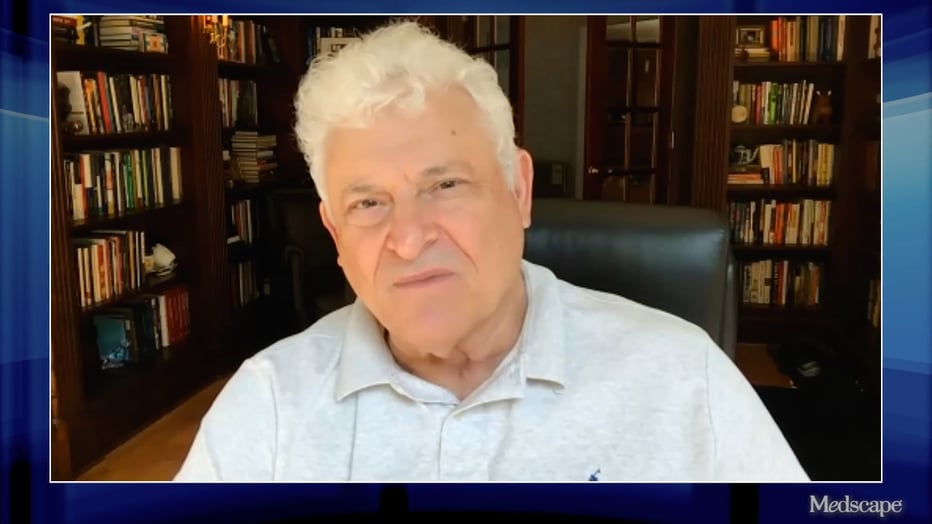Hi. I’m Art Caplan. I’m at the New York University Grossman School of Medicine, where I run the Division of Medical Ethics.
There has been much discussion lately about vaccine mandates. I support vaccine mandates. I think there are too many unvaccinated people in the United States, and I think governments and private employers should be pushing harder to insist on vaccination either of employees or of citizens in a city, county, or state.
Unfortunately, too many states have tried to fight vaccine mandates, claiming they’re somehow too much of an imposition on liberty. Nothing could be further from the truth. The way we achieve liberty or freedom is to eliminate the virus; stop having to close schools, jobs, and the economy; and be able to go about our business because we know we’re not going to the hospital and the virus is not going to kill us because we’re vaccinated.
To make mandates work, you need something else. You need vaccine passports or vaccine authentication. Many people, when they hear about the idea of having a vaccine card, think, Oh, I don’t want to do that. It’s an invasion of my privacy. I don’t want somebody to know whether I’m vaccinated or not.
We’re in a plague. We’re in a situation where the world is still, 18 months after COVID-19 first appeared, struggling to work its way back to some semblance of normality. We need vaccination. We also need to be able to prove that we’re vaccinated. The Biden administration, in my view, has failed utterly to give us a national vaccine card to use when we travel overseas or when people want to come here as students, workers, or tourists. It makes no sense not to be able to say you’re vaccinated.
We used to have a card for vaccination that the World Health Organization issued, showing yellow fever vaccination, and in the old days, smallpox and other vaccinations. It’s not a new idea. We need it for international commerce and tourism. I hope that the administration reverses the decision and creates a difficult-to-counterfeit, chipped card that will go along with your passport.
We also need it domestically. The province of British Columbia in Canada has just decided to issue vaccine cards. You’re going to need to show them to get into sporting events, gyms, and restaurants. I hope they add hospitals, nursing homes, and other places where you might have a large aerobic exposure. I would like to see vaccine authentication cards if you’re going to visit someone in a hospital, a nursing home, or maybe even a school.
Vaccine authentication should not worry anyone about their civil liberties. The only people who are going to need to know your vaccine status are the businesses that you’re trying to go in to make sure that you’re safe, their employees are safe, and their customers are safe, or in healthcare settings — to make sure their patients are safe.
Yammering on about privacy being violated makes zero sense in a world in which we track ourselves on our cell phones and the credit card companies know our every purchase. Our privacy, if you will, has been sacrificed to private industry to gain many benefits of easy banking, easy commerce, being able to get Ubers and Lyfts, and on and on.
Having the ability to go into society and not worry about who’s not vaccinated, who might be compromising my health, or whether there are children who are going to get exposed, I think, is a price worth paying to have vaccine authentication cards.
We need international cards. We need domestic proof. We should be following British Columbia and other locations, like Switzerland, and start to be able to show who’s vaccinated. Will it encourage and even force vaccination? Yes. Is that a bad thing? No.
I’m Art Caplan at the Division of Medical Ethics, New York University Grossman School of Medicine. Thanks for watching.
Arthur L. Caplan, PhD, is director of the Division of Medical Ethics at New York University Langone Medical Center and School of Medicine. He is the author or editor of 35 books and 750 peer-reviewed articles as well as a frequent commentator in the media on bioethical issues.
Source: www.medscape.com/viewarticle/958432?faf=1&impID=3696975&src=WNL_bom_211010_MSCPEDIT

